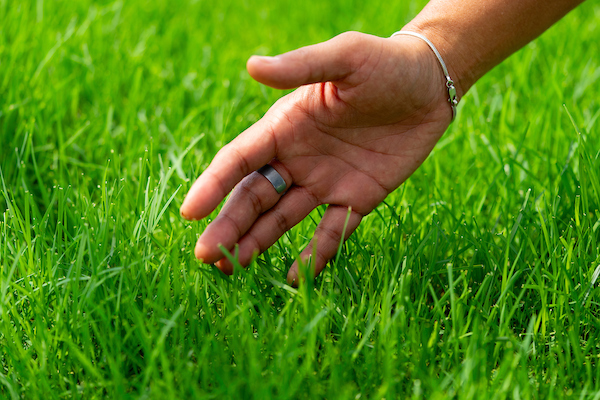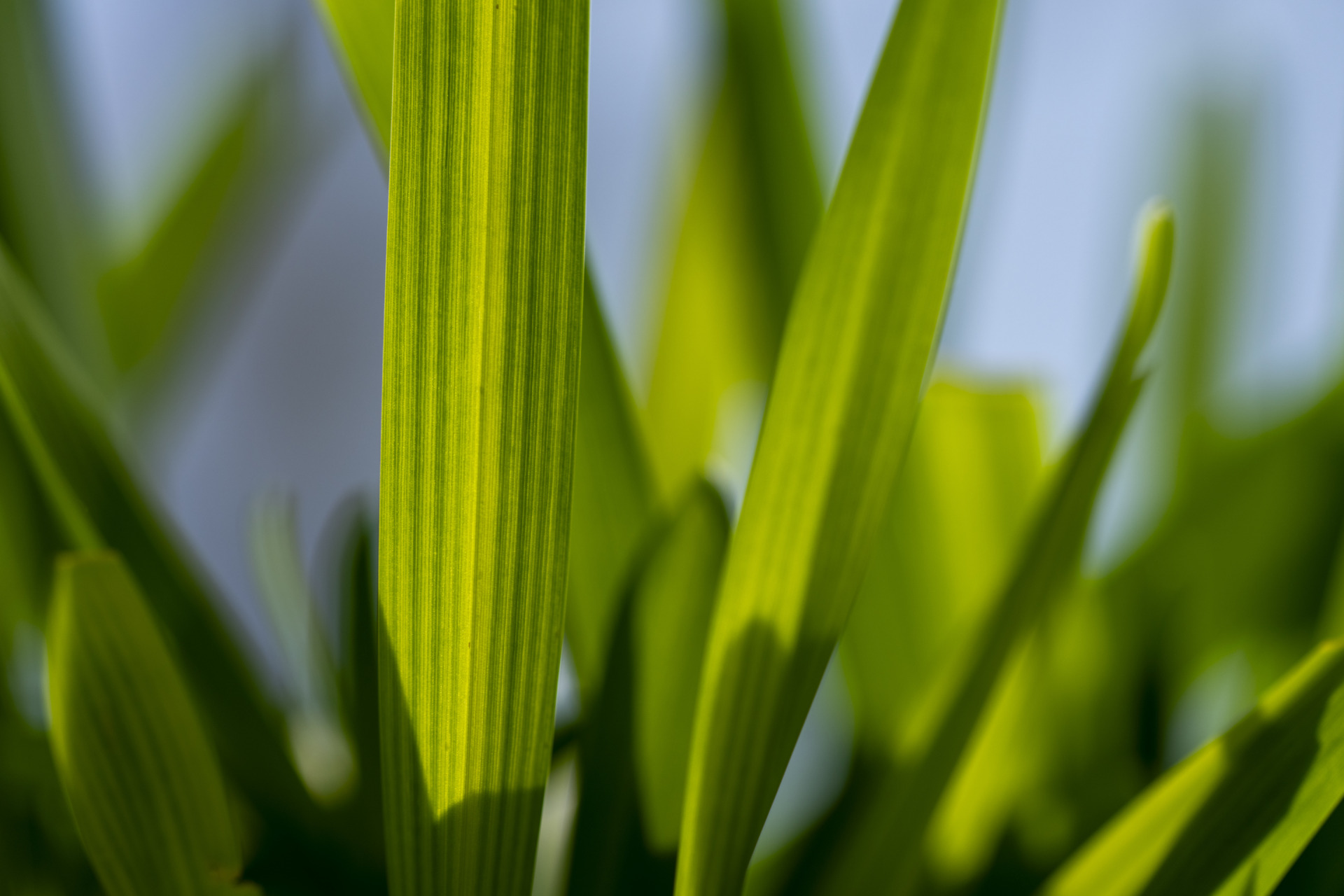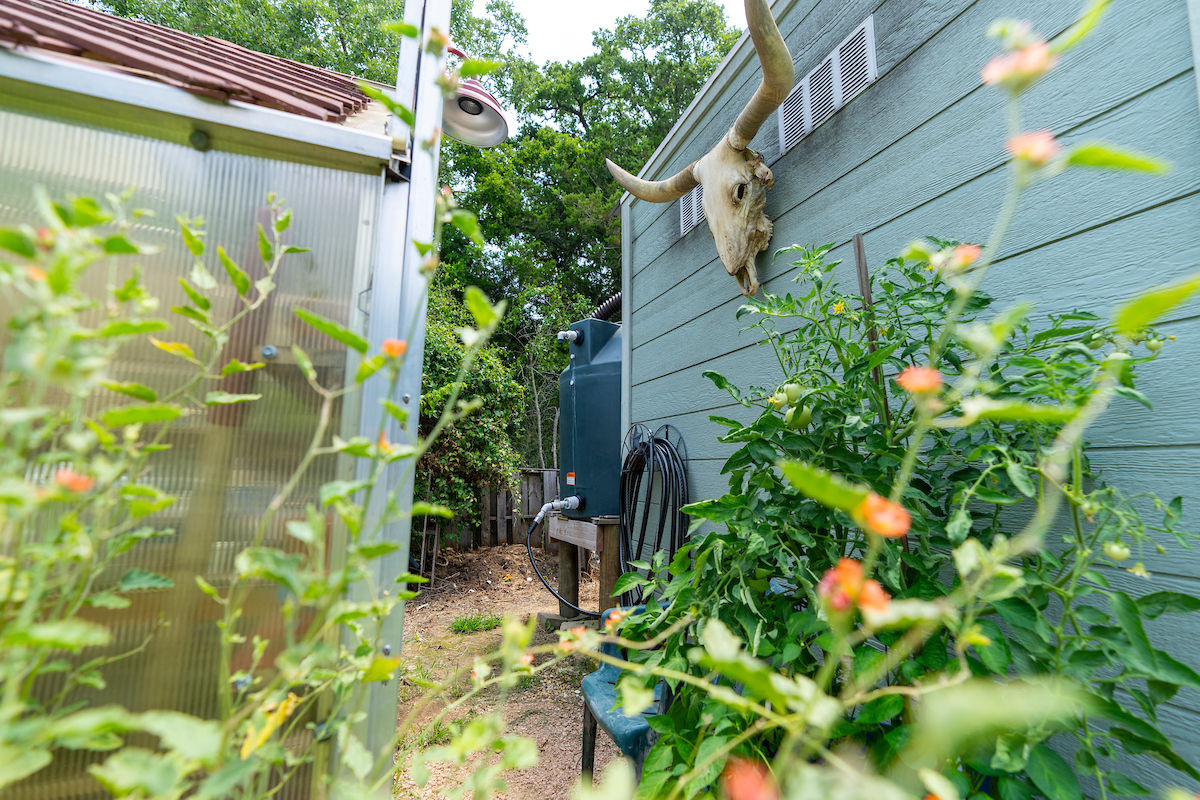AgriLife Extension experts team up for Earth-Kind turfgrass trials in North Texas
By: Paul Schattenberg, 210-859-5752, paschattenberg@ag.tamu.edu
Contact: Dr. Matt Elmore, 972-952-9220, matthew.elmore@ag.tamu.edu
Dr. Steve George, 972-540-2019, s-george3@tamu.edu
Dr. Greg Church, 972-548-4232, gtchurch@ag.tamu.edu
DALLAS – A team of Texas A&M AgriLife Extension Service experts has initiated the first research trials on ornamental turfgrass varieties applying Earth-Kind landscaping principles, which emphasize environmental responsibility through water conservation and limited chemical inputs.
The trials, which will be conducted over a period of several years, will take place at Myer’s Park and Event Center, a 158-acre site near McKinney. The park is also the site for several Earth-Kind research and demonstration gardens where trials are being conducted on perennials, annuals, herbs, shrubs, grapes, crape myrtle and vegetables.

“Earth-Kind is a registered trademark of the AgriLife Extension,” explained Dr. Steve George. “AgriLife Extension landscape specialist based in Dallas. “Earth-Kind principles have been in use since the 1990s and focus on lower water use and a reduction in fertilizers and pesticides. There are years of research behind these principles and now they are going to be applied to test turfgrass varieties. ”
George, who developed the Earth-Kind Environmental Landscape Management System, said to his knowledge this will be the first time anyone has ever conducted research trials on ornamental turfgrass using Earth-Kind principles.
According to experts, in urban areas exterior irrigation is estimated to account for as much as 60 percent of household water use, with the majority of that used for turfgrass irrigation.
Dr. Matt Elmore, AgriLife Extension turfgrass specialist at the Texas A&M AgriLife Research and Extension Center in Dallas and lead investigator on the trials, said the trials are being conducted in response to both turfgrass industry interest and for practical application by homeowners.
“We’ll be looking at things like how much water the different species need to remain green, as well as examine their overall durability and drought tolerance and how well they perform with limited chemical inputs,” Elmore said.” The research will examine which turfgrasses have the strongest genetics and how well they respond in different soil preparations. The overall goal is to find management techniques that improve turfgrass density and durability with limited fertilizer and chemical inputs.”
Elmore said the trials are being conducted on 20 plots, representing five treatments and four replications, of commonly used Bermuda grass varieties.
“In the future, we hope to add St. Augustine and zoysia grass varieties for testing as well,” he said.

Elmore said the five different soil treatments for the trials will consist of a control, aerified soil, soil amended with a half-inch layer of compost, aerified soil with compost, and aerified soil with a mixture of compost and expandable shale.
Many of the soils in this area and other areas of the state are heavy clay soils,” Elmore said. “Our goal is to improve the soil structure and provide different mediums in which it can grow. Then we can compare and analyze which soil improvements work better.”
“Earth-Kind turf research is a new area of research for us and there is a lot of potential to learn better ways to manage turfgrass in an environmentally friendly way,” said Dr. Greg Church, AgriLife Extension horticulturist, Collin County, who is collaborating in the research. “And it’s especially useful considering there hasn’t been research to date that supports using these practices on turfgrass.”
Church said after many years of drought in Texas, many Texas lawns need to be renovated through proper management strategies and this is one of the reasons for testing and developing strategies through the Earth-Kind Turfgrass Research project.
“We hope that homeowners, businesses, and commercial lawn-care businesses will adopt research-proven methods of managing and maintaining a healthy lawn,” he said.

Church and Elmore also expressed their appreciation to Myer’s Park, Texas Pure Products, Schiller Grounds Care, Trinity Industries and the Collin County Master Gardeners for their support of the project.
“Dr. Elmore and the Collin County Master Gardeners will help maintain the plots and collect research data over several years,” he said. “And there’s also the opportunity for other counties to replicate this trial at other locations with different types of turfgrasses and soils. This is just the beginning of this type of research, so we hope to expand it and test new ideas that will directly benefit the end user who adopts these practices.”





